
The Future of AI in Recruiting (2026 Edition)
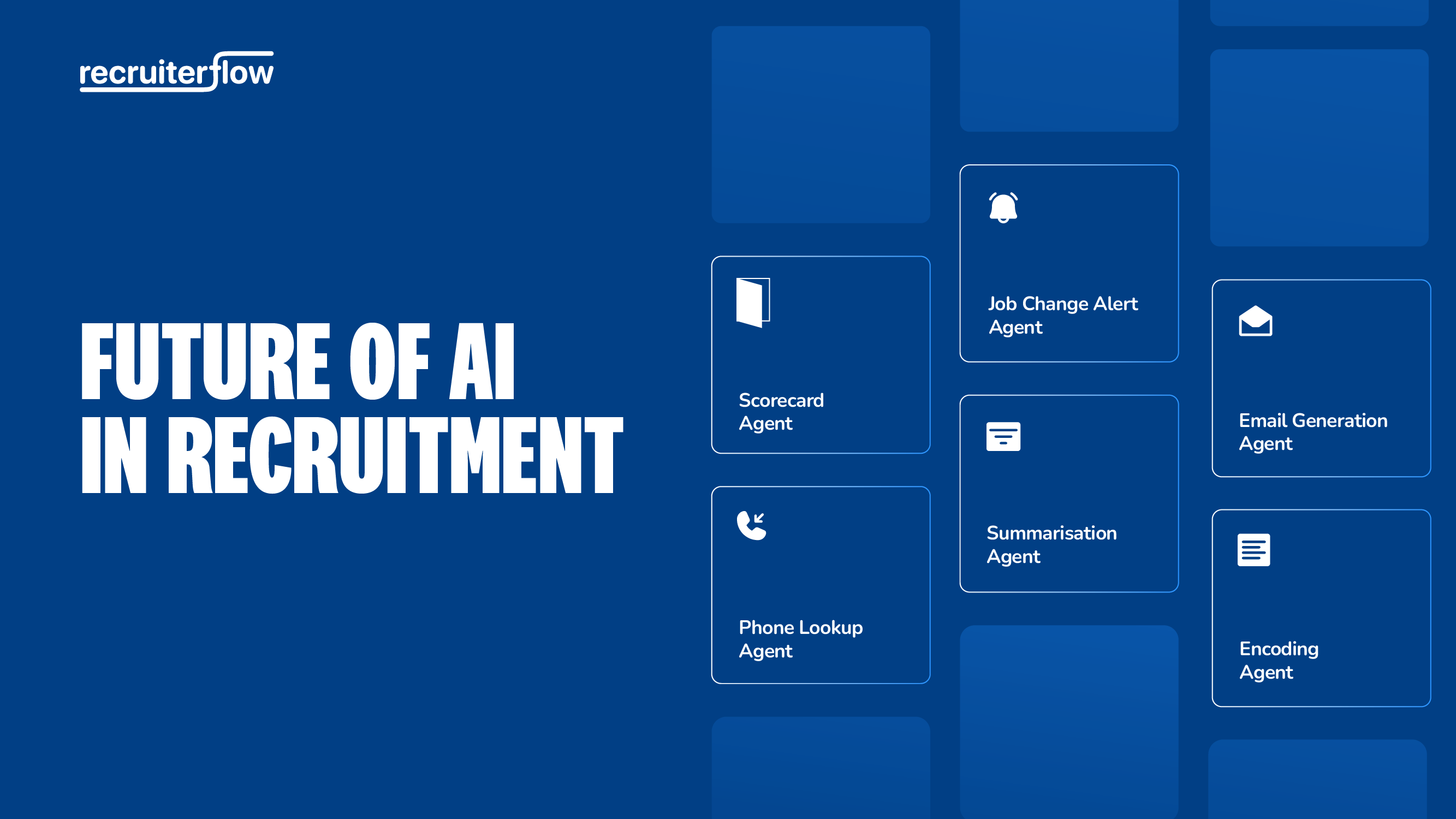
AI in recruiting today is much like swimming. It isn’t difficult to master, but it’s not easy to start either. We’ve all heard stories of how a lot of people learn swimming – thrown into the pool directly without any instructions or training. Eventually, they figure out how to swim.
That’s how AI in recruiting feels like today.
Agency owners and recruiters are being bombarded with AI tools, headlines, and hype — and the most common question I hear is, “Where are we headed with this?”
Many recruiters are already using AI recruiting tools for sourcing, screening, and creating content. Soon, AI tools will be ubiquitous, but before we reach there, let’s take stock of the present and understand what the future of AI in recruiting looks like.
How AI is Changing Recruiting and Why Recruiters Should Care About It
According to Gallup research, over 90% of Fortune 500 companies are using AI in recruitment. If we look at the giants in the recruitment industry, the trend is similar.
In 2024, Korn Ferry used AI to reduce time spent on administrative tasks, screen more candidates, and diversify the talent pool, reporting a 50% increase in sourcing and a 66% decline in time-to-interview.
Robert Half uses AI to eliminate admin friction. Resumes are parsed instantly. Interviews are scheduled automatically. Recruiters are no longer logistically bogged down—they’re back in the business of advising, influencing, and closing.
There are plenty of examples. In essence, the current use cases of AI recruiting majorly include AI sourcing, AI screening, candidate matching, writing content, creating summaries, and processing data.
Rise of AI Recruitment Tools
AI recruitment tools are different from recruitment automation tools. While automation tools execute a set task driven by pre-defined rules or triggers, AI recruitment tools bring intelligence and autonomy to the process.
For instance, AI recruitment tools can summarise a candidate’s profile, assess role fitment and judgement, write emails, and even set reminders or meetings. This means recruiters can focus on more strategic tasks over repetitive admin work.
AI can help recruiters save time by reducing or removing admin tasks completely. For instance, Recruiterflow is an AI-first platform that helps recruiters submit candidates within 10 seconds. The tool understands context from emails, calls, notes, and other conversations to create highly contextual and personalized emails.
ChatGPT is still the most common tool used by recruiters, primarily for creating content, be it outreach, engagement, or just summaries. In less than 2 years, we’ve seen specialized tools for screening, candidate matching, assessments, etc. make it to the list.
The trend is clear: As AI progresses, new use cases will present themselves. Most AI recruitment tools will essentially solve a particular problem or a set of problems for recruiters.
Also Read: 15 Best AI Recruiting Tools of 2026
What The Future of AI in Recruiting Will Look Like in 2030?
Based on the trends, reports, and discussions by industry leaders, here’s what AI in recruiting will look like in 2030.
1. AI Won’t Replace Recruiters. It Will Empower Them
Recruiting is, and always will be, a people-centric business. The role of a recruiter has always been to build long-lasting relationships with candidates and clients. Unfortunately, recruiters are stuck in admin work. 45% recruiters admit they face burnout due to repetitive admin work.
AI Agents will soon take over the admin work for recruiters, giving them back the time to focus on what matters the most – building relationships and closing business.
2. AI Will Reduce Recruiter Burnout
This is the biggest impact of AI in recruitment. According to our research, over 60% of recruiters are burnt out, and over 45% of them agree it is due to repetitive admin tasks. When a recruiter spends more time on tasks like updating CRM, setting up reminders, and logging meeting notes, less time is spent on the real job of building relationships. It leads to burnout and frustration.
AI can automate the admin so recruiters can focus on high-value work. In other words, AI can give recruiters back their time. How wonderful is that?
3. Agentic AI Will Marry Autonomy and Automation
Agentic AI is by far the most exciting development, because it holds the promise of transformation.
Think of AI Agents in recruitment as digital teammates who work 24*7 to execute a bunch of tasks. Honestly, the possibilities are endless. Take, for example, Recruiterflow’s candidate submission agent.
It helps recruiters create submission emails 70% faster. The agent is trained on 10,000+ submission emails, but the best part? The agent understands context from past conversations, emails, notes, and calls before creating the email. The submission agent is helping recruiters ditch the generic email templates and create highly structured and context-aware emails.
You can see it in action here: Submission Agent on Recruiterflow | Submit candidates 70% faster
4. AI Will Help Recruiters Make Data-Backed Decisions
Now, this is an interesting use case. The recruitment industry is heavily impacted by the market conditions. As the competition continues to grow and margins shrink, making a data-backed plan is crucial for growth and scale. As of today, AI can do number crunching, identify patterns, and even suggest basic adjustments, but by 2030, AI will be at the forefront of decision-making with predictive analytics at the centre stage.
For agency owners, this would mean a deeper understanding of the business health and recruiter productivity. For recruiters, it would make all the efforts more focused. AI can identify patterns and business opportunities that may get overlooked otherwise.
5. AI Candidate Sourcing & Matching
Recruitment is a simple business. Find the right candidates and match them with the right jobs – yet, sourcing candidates and matching them to the right job is often the hardest part to get right. AI candidate matching and sourcing will help recruitment agencies bill more by reducing the time to submittal. When candidate matching is on point, the time to hire, time to fill, and even cost per hire will come down. That means the agency can manage more job orders in the same time period.
It also impacts the client experience. The way we look at it, agencies that will win repeat clients will definitely be those who fill more roles, faster, with less admin overhead.
The Role of AI Is NOT Universal
Every recruitment agency is different. The workflows are built after years of trial and error, the processes are designed to meet internal needs, and even the tech stack is handpicked to serve a particular purpose. The way we see it, the role of AI and AI Agents will never be the same across the board. It will be defined not just by the industry but the agency size, the roles they manage, among other factors. Having said that, there are two main factors that will drive the role of AI: the complexity of the role and the volume of hiring.
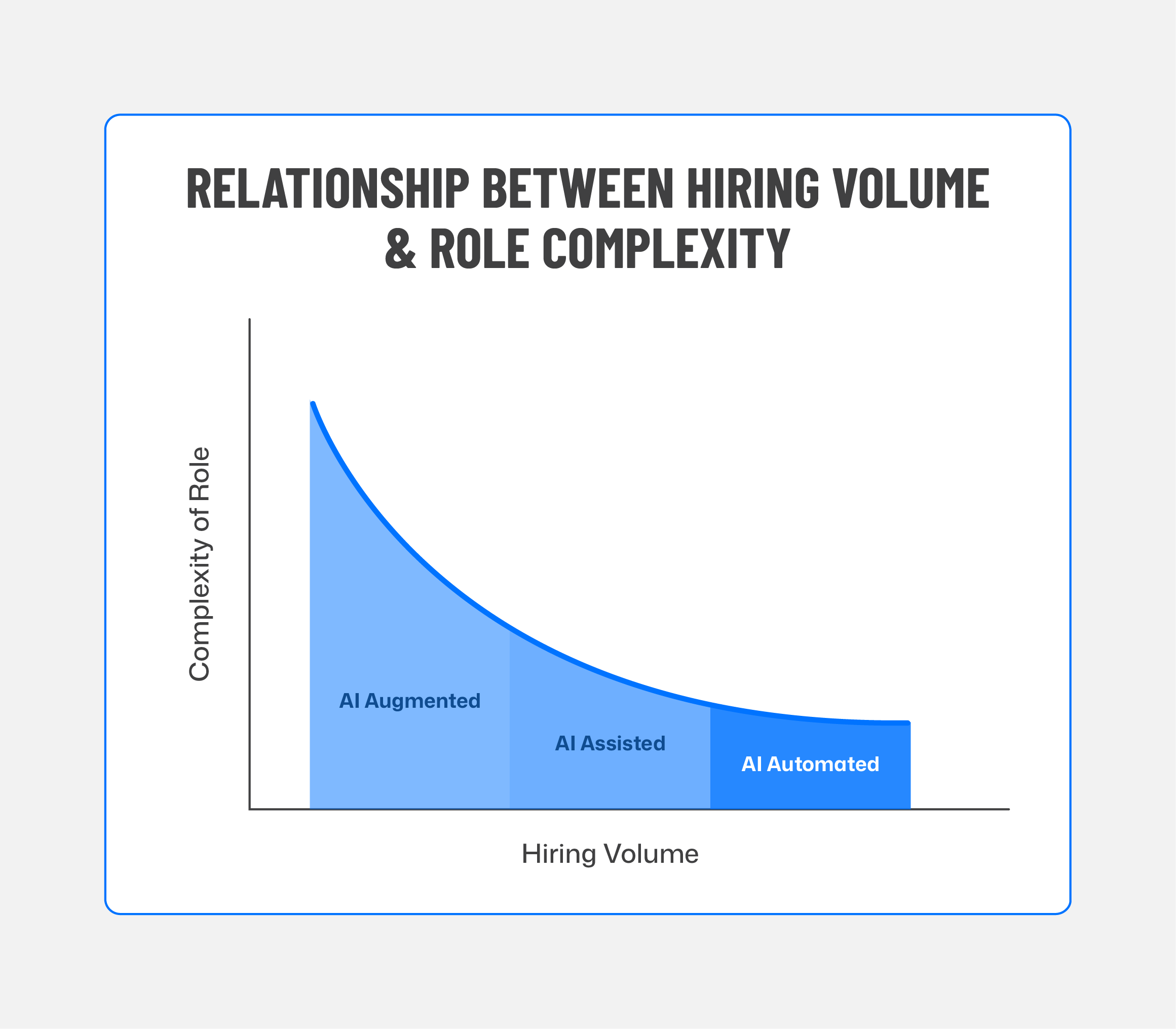
Here’s a breakdown to understand the role of AI & AI Agents based on the complexity of the role and the volume of hiring.
| Recruiting Type | Complexity | Volume | Role of AI Agents | Recruiter Value |
| High-volume staffing | Low | High | AI-automated: Automate 90% of the process | Fulfilment and engagement |
| Executive search | High | Low | AI-augment:Support research and insight | Relationship, insight, positioning |
| Entry to Manager-level hiring | Medium | Medium | AI-assisted: Streamline sourcing, screening, and follow-up |
Match quality, process speed, consistency |
For high volume roles with low complexity, AI will automate up to 90% of the entire process from sourcing and screening to assessment and offer. Whereas, in the case of roles with high complexity (ex, executive search roles) that have a low hiring volume, AI will augment the recruiting process. The crucial decision-making will continue to be driven by the recruiter.
Cut admin work, increase placements and let your recruiters focus on conversations, not spreadsheets. Discover how with Recruiterflow AI.
How Recruiterflow is Using AI in Recruitment
Recruiterflow is an AI-first ATS & CRM built for recruitment agencies. The platform offers a suite of AI agents, automations, and advanced reporting to drive revenue outcomes.
Recruiters can manage candidate pipelines, run multi-channel sequences, track deals, and collaborate with clients — all within a single unified system. At its core, Recruiterflow empowers recruiters to double their productivity and focus on what truly matters: closing candidates, not updating spreadsheets.
When it comes to AI, Recruiterflow has a suite of AI Agents that come under AIRA – AI Recruiting Assistant. Each AI Agent is built to help recruiters focus on what they love the most – building relationships.
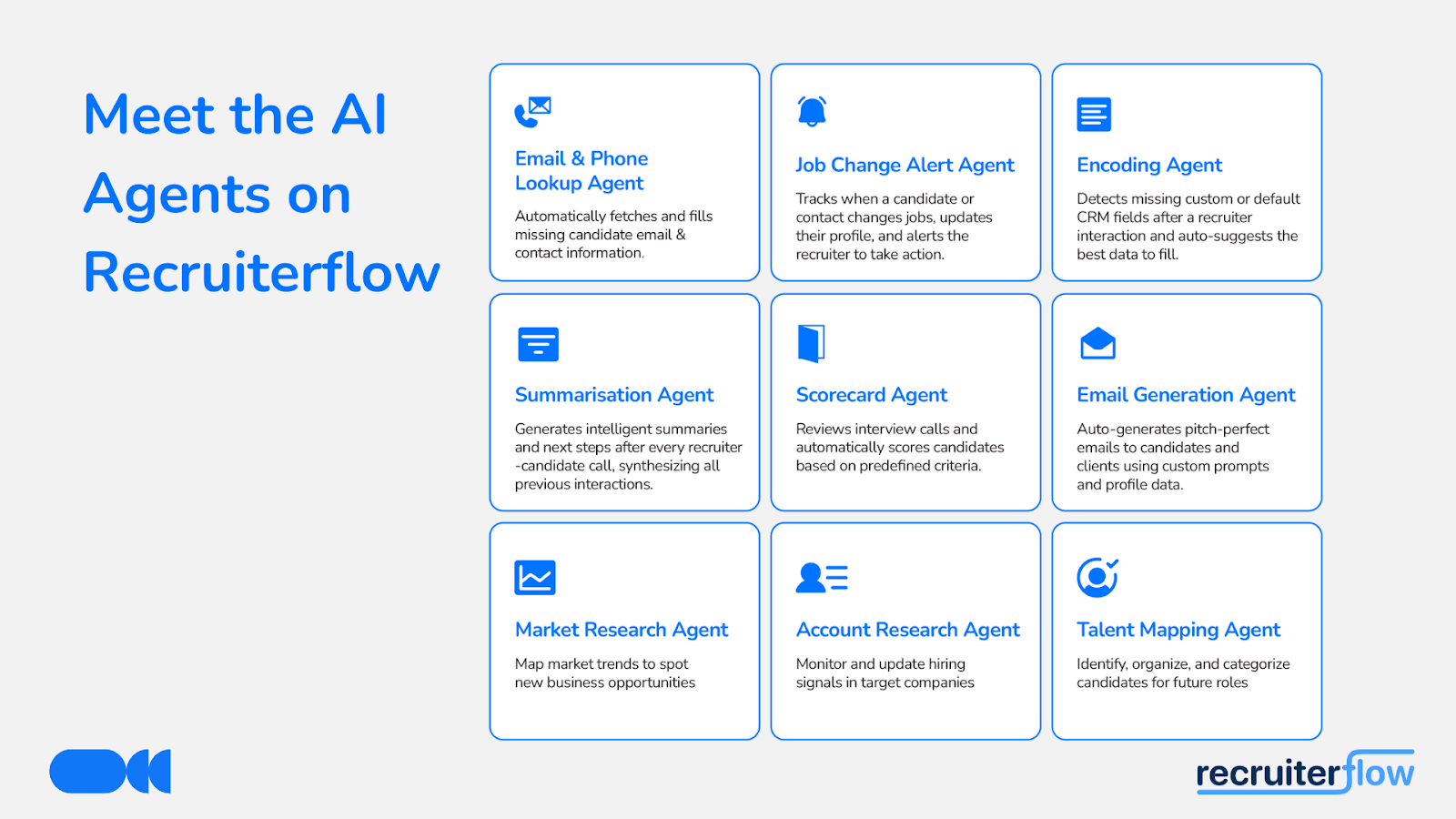
The future of AI in Recruitment is exciting. One thing is certain: AI cannot replace recruiters, and when used right, it will empower them to do more: more conversations, more placements, more revenue.
If you’re wondering where to start with AI, don’t worry, we’re here to help. Speak to our product experts. In the meantime, here’s a webinar we highly recommend every recruitment leader watch. In this webinar, Manan Shah, CEO of Recruiterflow, dives into how AI Agents are helping recruiters do more of what matters, placing candidates, building relationships, and billing more, without drowning in admin. It’s a must-watch – take our word for it.
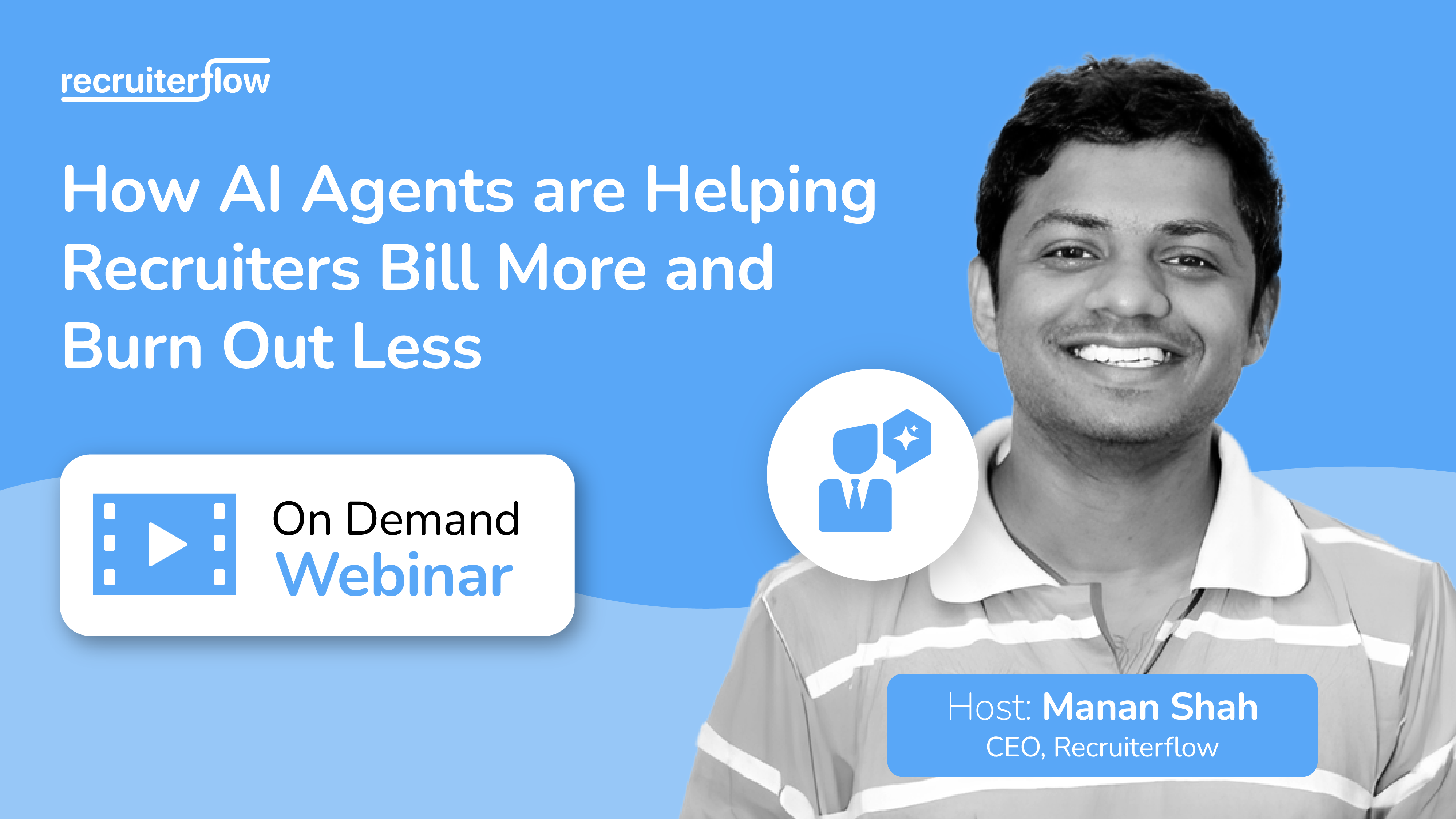
Recruitment

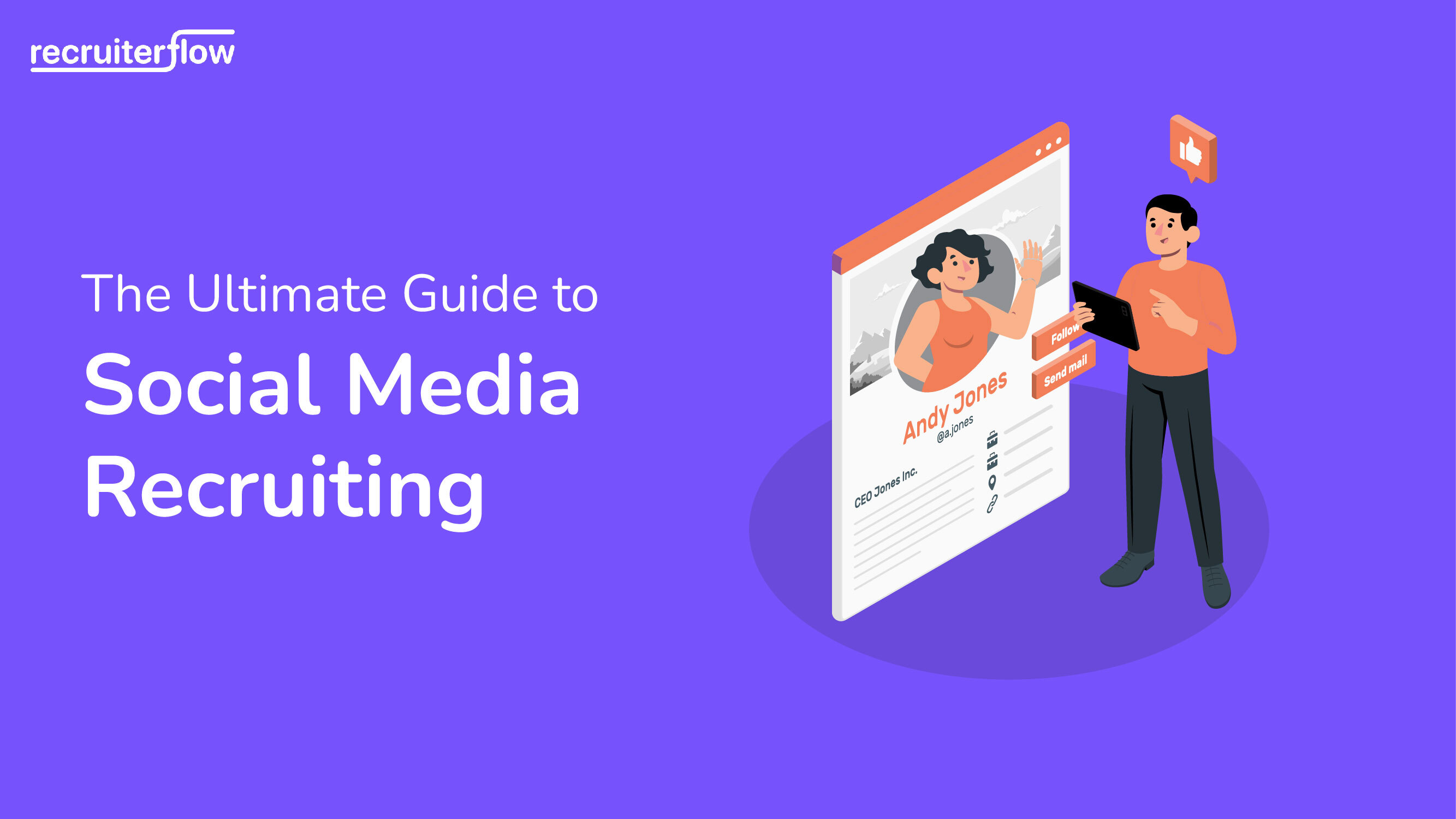
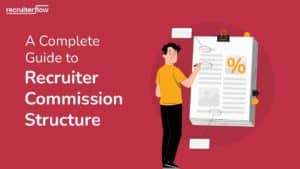
Manan Shah